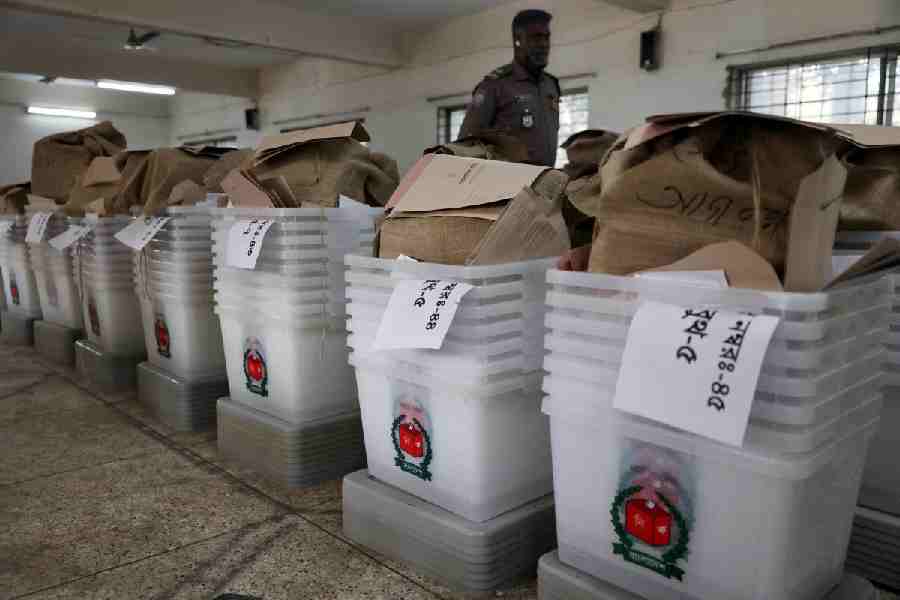 |
| Villagers flee their homes in the Sunderbans after the cyclone. (Bishwarup Dutta) |
Cyclonic storms like Aila can trigger serious security concerns, a recent study by the Delhi-based Tata Energy Research Institute (TERI) has found.
Funded by the British high commission, the study, ‘Climate Change-Induced Migration and its Security Implications in India’s Neighbourhood’, found that a sudden climatic event like Aila has both immediate and long-term impact. In the immediate aftermath, the mainland witnesses a massive influx of migrants but it does not stop there; in the long run, the migration continues in the form of a slow trickle.
“Climate change-induced migration has the potential to exacerbate conflict and be a stress-multiplier by accentuating competition, ethnic tension, distrust, or by adding to existing socio-economic fault lines,” says the report.
“Nearly 20 per cent people from the Sunderban islands have moved out in fear since Aila struck, mostly from worst-affected areas like Kumirmari, Amtali, Chotomollakhali, Patharpratima and Gosaba,” said Kanti Ganguly, the Sunderbans affairs minister.
The tell-tale signs are bound to show up in Calcutta, feel experts.
Simon Wilson, the British deputy high commissioner in Calcutta, said the study was conducted to “gauge the long-term threat of possible migration forced by climate change”.
“When such migration happens, there is bound to be social tension, especially in a city like Calcutta, where people have to compete for livelihood,” feels Dipankar Sinha, head of the political science department in Calcutta University.
“Initially there is sympathy for migrants, followed by a phase of benign indifference that finally leads to hostility. We are also bound to move through such stages,” he added.
The report warns that post-Aila, migration into a high population density area can lead to expansion of slums and spread of disease.
Sinha feels that the rise in criminal activities in the city can be attributed to this trend. “When people are uprooted, they are uprooted physically as well as culturally and generally have less at stake; under severe stress many tend to take up unlawful means of survival.











